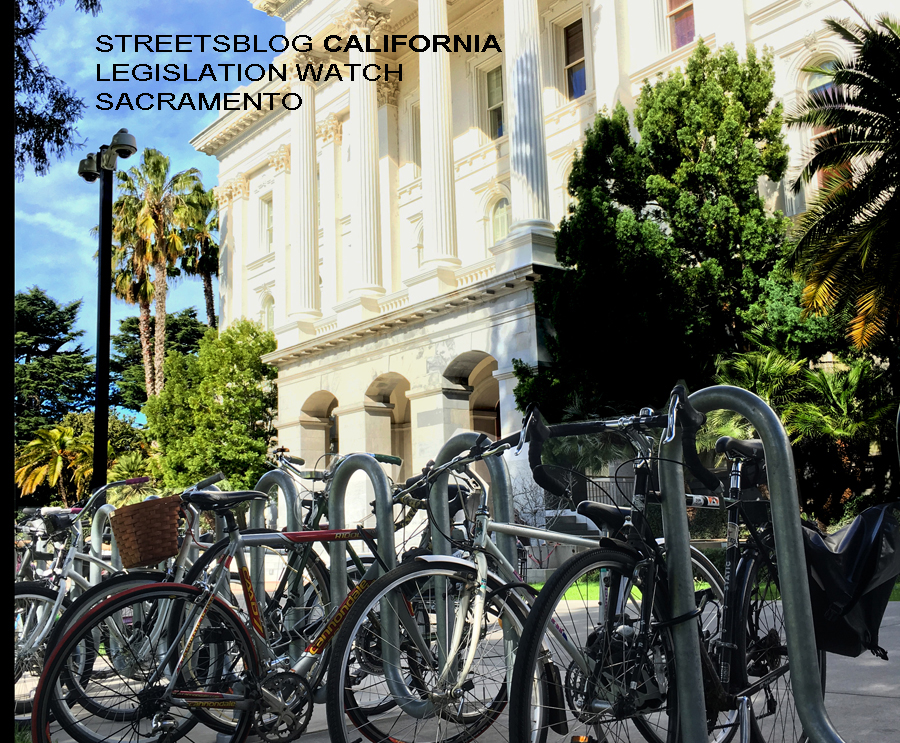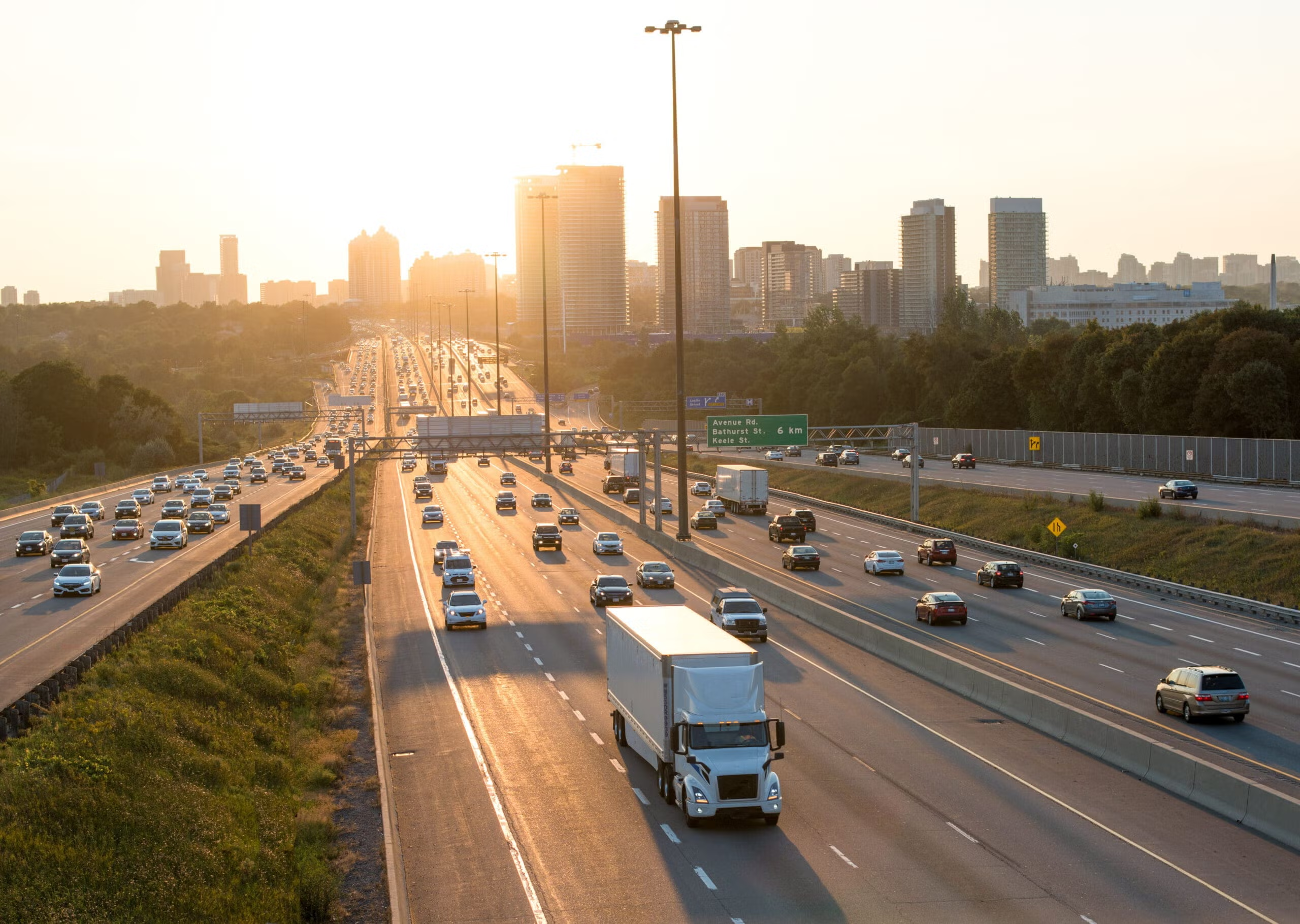Note: GJEL Accident Attorneys regularly sponsors coverage on Streetsblog San Francisco and Streetsblog California. Unless noted in the story, GJEL Accident Attorneys is not consulted for the content or editorial direction of the sponsored content.
Among the hundreds of new laws signed by Governor Gavin Newsom in the weeks leading up to Sunday's deadline were a few related to transportation. Below we highlight the relevant ones.
But Newsom also vetoed a few hundred others, notable among those the Complete Streets bill. His final legislative message claimed the bills he vetoed would have cost a total of $1.2 billion annually - does that include the absurd Caltrans estimate that S.B. 127 would have cost as much as $1 billion a year? If so, that's not a very impressive achievement, especially given unanswered questions about that estimate.
Other bills he turned down include S.B. 277 from Senator Jim Beall, which would have changed the funding formula for the Local Partnership Program. That program provides $200 million every year from S.B. 1 to "self-help counties" that have passed a local or regional transportation sales tax. Half of that gets distributed by formula, based on population, and the other half goes into a competitive fund to give the state some leeway to encourage projects that help meet state goals. Senator Beall wanted to change that to 75 percent by formula and only fifteen percent to the competitive grants. Newsom's veto message [PDF] says it would hamper the state's ability to respond to "emerging needs" and could make it difficult for small urban and rural communities to compete for a smaller pot of money.
Newsom also vetoed a local bill, A.B. 1605, that would have allowed San Francisco to create a program to charge people who wanted to ride down "the crookedest street," Lombard Street. Long a tourist draw, Lombard has become jammed with ridiculous crowds on its busiest days. Local residents wanted a way to control or reduce the traffic there, and some saw A.B. 1605 as a chance to create a hyperlocal congestion charge, which would require an exemption from state law. Newsom cited equity issues for not signing the bill, which could be a bad sign for future attempts at congestion pricing.
Among the bills he did sign were:
Public transit
S.B. 742 from Senator Ben Allen (D-Santa Monica). Amtrak may now sell bus tickets to passengers who are not planning to travel on its trains. This should help fill empty bus seats and provide intercity bus transportation in areas where that is lacking. It remains to be seen what Amtrak will do, however - the last time this reporter asked for a bus schedule or a list of bus stops, an Amtrak representative replied, "We don't have one; we are not a bus service provider."
Planning:
A.B. 29 from Assemblymember Chris Holden (D-Pasadena) and S.B. 7 from Anthony Portantino (D-La Cañada-Flintridge). Both to these put the lid on any notion that the 710 freeway might one day continue north of L.A. into Pasadena. S.B. 7 also provides protections for current tenants of state buildings along the planned route and also lays out plans for relinquishing some of the state's right of way to the city of Pasadena.
A.B. 285 from Assemblymember Laura Friedman (D-Glendale). The California Transportation Plan, produced by Caltrans, must now address how it will help meet state greenhouse gas emission and clean air goals. Starting in 2025, the CTP will have to forecast potential impacts of future transportation technologies on infrastructure, access, and the overall transportation system. It will also be required to consider environmental justice in its planning for transportation and freight movement.
A.B. 1560 from Assemblymember Friedman. The California Environmental Quality Act underwent a revision to the way it determines the environmental impacts from transportation near transit, which it defines as areas within 1/2 mile of a major transit stop. This bill adds "bus rapid transit station" to the definition of "major transit stop."
Bikes Are Clean Vehicles
We wrote about this before, but it bears repeating: S.B. 400, from Senator Tom Umberg (D-Long Beach) adds bike-share and e-bikes to the Clean Cars 4 All Program. Administered by the State Air Resources Board, the program gives vouchers to low-income residents to replace older fossil fuel vehicles with cleaner and more efficient ones - or, now, with an e-bike.
Policy coordination
A.B. 185 from Assemblymember Tim Grayson (D-Concord) will add representatives from the Department of Housing and Community Development to the joint meetings currently held twice a year between the California Transportation Commission and the Air Resources Board. The idea behind this is for the agencies to coordinate on policies to further state goals, and to find ways to align transportation funding with climate goals - and, now, housing goals as well.
Bike Guidance at Intersections:
Back in September, Newsom also signed A.B. 1266 from Robert Rivas (D-Hollister). This law requires Caltrans to develop guidance signs that let bike riders know it's okay for them to go straight through an intersection from certain right-turn-only lanes. Signs are required, by law, to allow bikes to do so. So now Caltrans must design and install them, by law.






